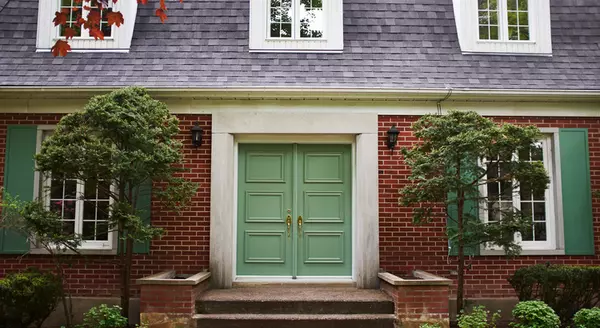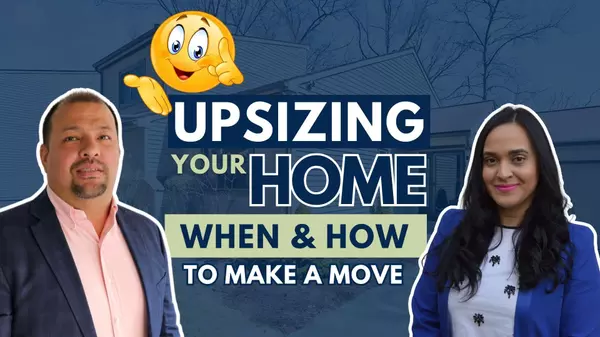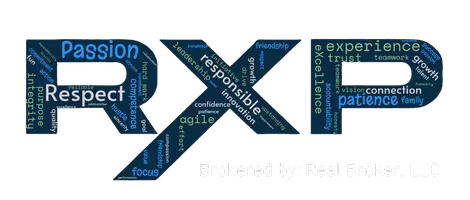
Por qué necesita usar un agente en bienes raíces al comprar una casa
Si decidió recientemente que está listo para convertirse en propietario de una casa, es probable que esté tratando de averiguar qué hacer primero. Puede resultar un poco abrumador saber por dónde empezar, pero la buena noticia es que no tiene que navegar por todo eso solo.Cuando se trata de comprar una casa, hay muchas piezas en movimiento. Y eso es especialmente cierto en el mercado de la vivienda actual. El número de casas para la venta sigue siendo bajo, y los precios de las casas y las tasas hipotecarias siguen siendo altas. Esa combinación puede ser complicada si no tiene un experto confiable y un asesor de confianza de su lado. Es por eso por lo que el mejor lugar para comenzar es comunicarse con un agente local en bienes raíces.Los agentes son la fuente #1 más útil en el proceso de compraEl último informe anual de la Asociación Nacional de Realtors (NAR, por sus siglas en inglés) encontró que los compradores de casas recientes están de acuerdo en que la fuente de información #1 más útil que tenían en el proceso de compra de una casa era un agente en bienes raíces. Analicemos por qué.Cómo ayuda un agente cuando compra una casaCuando piensa en un agente en bienes raíces, es posible que piense en alguien que le lleve a ver casas y reúna el papeleo, pero un agente excelente hace mucho más que eso. No se trata solo de ser el facilitador de su compra, sino de ser su guía en cada paso.La siguiente grafica muestra algunos ejemplos de esa misma edición de NAR de las muchas formas en que un agente agrega valor. Incluye el porcentaje de los compradores de casas en ese informe que destacaron cada uno de estos beneficios: Aquí hay un poco más de contexto sobre cómo los resultados de la encuesta señalaron que un agente continuamente ayuda a los compradores en estas situaciones:Ayuda al comprador a comprender el proceso: ¿Conoce la diferencia entre la inspección y la tasación, ¿qué le dice cada informe y por qué ambos son importantes? ¿O que hay cosas que no debe hacer después de solicitar una hipoteca, como comprar electrodomésticos o muebles? Un agente conoce todas estas buenas prácticas y las compartirá con usted a lo largo del camino, para que no falte ningún paso clave cuando llegue a la mesa del cierre.Características o fallas inadvertidas en la casa: Un agente también tiene mucha experiencia en la evaluación de la casa. Ellos realmente lo han visto todo. Podrán identificar algunas cosas que quizás no haya notado sobre la casa que podrían ayudarle a tomar una decisión informada o al menos qué reparaciones usted puede solicitar.Proporciona una mejor lista de proveedores de servicios: En una transacción de bienes raíces, hay muchas personas involucradas. Un agente tiene experiencia trabajando con varios profesionales en su área, como inspectores de casas, y puede ayudarle a comunicarse con los profesionales que necesita para una experiencia exitosa.Negociar mejores términos de contrato y precios: ¿Apareció algo en la inspección de la casa o en la tasación? Un agente le ayudará a renegociar según sea necesario para obtener los mejores términos y precios posibles para usted, para que se sienta seguro con su gran compra.Mejorar el conocimiento del comprador sobre el área de búsqueda: ¿Se muda a una ciudad nueva y no está familiarizado con el área, o se hospeda cerca, pero no sabe qué vecindarios son más asequibles? De cualquier manera, un agente conoce el área local como la palma de su mano y puede ayudarle a encontrar la ubicación perfecta para sus necesidades.Amplía el área de búsqueda del comprador: Y si no encuentra nada que le interese dentro de su radio de búsqueda inicial, un agente conocerá otros vecindarios cercanos que debe considerar en función de lo que le gusta, los servicios que desea y más.En conclusiónSi está buscando comprar una casa, no se olvide de las distintas maneras en que un agente es esencial para ese proceso. Cualquier obstáculo que surja, o negociación que deba llevarse a cabo, y más, su agente sabrá cómo manejarlo mientras se asegura de minimizar su estrés en el camino. Comuníquese con un agente local en bienes raíces para abordar esto juntos.

Why You Should Use a Real Estate Agent When You Buy a Home
If you’ve recently decided you’re ready to become a homeowner, chances are you’re trying to figure out what to do first. It can feel a bit overwhelming to know where to start, but the good news is you don’t have to navigate all of that alone.When it comes to buying a home, there are a lot of moving pieces. And that’s especially true in today’s housing market. The number of homes for sale is still low, and home prices and mortgage rates are still high. That combination can be tricky if you don’t have reliable expertise and a trusted advisor on your side. That’s why the best place to start is connecting with a local real estate agent.Agents Are the #1 Most Useful Source in the Buying ProcessThe latest annual report from the National Association of Realtors (NAR) finds recent homebuyers agree the #1 most useful source of information they had in the home buying process was a real estate agent. Let’s break down why.How an Agent Helps When You Buy a HomeWhen you think about a real estate agent, you may think of someone taking you on home showings and putting together the paperwork, but a great agent does so much more than that. It’s not just being the facilitator for your purchase, it’s being your guide through every step.The visual below shows some examples from that same NAR release of the many ways an agent adds value. It includes the percentage of homebuyers in that report who highlighted each of these benefits:Here’s a bit more context on how the survey results noted an agent continually helps buyers in these situations:Helped Buyer’s Understand the Process: Do you know the difference between an inspection and an appraisal, what each report tells you, and why they’re both important? Or that there are things you shouldn’t do after applying for a mortgage, like buying appliances or furniture? An agent knows all of these best practices and will share them with you along the way, so you don’t miss any key steps by the time you get to the closing table.Pointed Out Unnoticed Features or Faults with the Home: An agent also has a lot of experience evaluating homes. They’ve truly seen it all. They’ll be able to pinpoint some things you may not have noticed about the home that could help inform your decision or at least what repairs you ask for.Provided a Better List of Service Providers: In a real estate transaction, there are a lot of people involved. An agent has experience working with various professionals in your area, like home inspectors, and can help connect you with the pros you need for a successful experience.Negotiated Better Contract Terms and Price: Did something pop up in the home inspection or with the appraisal? An agent will help you re-negotiate as needed to get the best terms and price possible for you, so you feel confident with your big purchase.Improved Buyer’s Knowledge of the Search Area: Moving to a new town and you’re not familiar with the area, or you’re staying nearby, but don’t know which neighborhoods are most affordable? Either way, an agent knows the local area like the back of their hand and can help you find the perfect location for your needs.Expanded Buyer’s Search Area: And if you’re not finding anything you’re interested in within your initial search radius, an agent will know other neighborhoods nearby you should consider based on what you like, what amenities you want, and more.Bottom LineIf you’re looking to buy a home, don’t forget about the many ways an agent is essential to that process. Any hurdle that pops up, a negotiation that needs to take place, and more, your agent will know how to handle it while they make sure to minimize your stress along the way. Connect with a local real estate agent to tackle it together.

How To Turn Homeownership into a Side Hustle
Does the rising cost of just about everything these days make your dream of owning your own home feel less within reach? According to Bankrate, many people are seeking additional income through side hustles, possibly to cope with those increasing expenses and save for a home. This trend is particularly popular with younger individuals who may be dealing with student loan debt (see graph below): Here are two strategies that can not only make homeownership more affordable in the short term, but turn it into a lucrative side hustle that can pay off down the road.Transforming the Challenge of a Fixer-Upper into an OpportunityOne thing you could do to help you break into homeownership is consider purchasing a fixer-upper. That’s a home that may be a bit less appealing and as a result has lingered on the market longer than normal. According to a recent article from U.S. News:“The current state of the housing market may have you expanding your options to try to find a home that you can afford. A fixer-upper that needs some updating and a little love can feel like a welcome alternative to move-in ready houses that go off the market before you can even take a tour.”By opting for a home that requires some work, you may see two big benefits. For starters, you may find it’s easier to find a home because you’re not looking for that perfect option. Plus, it may also help you enter the housing market at a lower price point. This strategy provides a more affordable way to become a homeowner while also offering the potential for future profits.Yes, the home may need a little elbow grease, but investing time and effort into gradually enhancing your house not only makes it a home but also increases its future market value. So, while you enjoy the satisfaction of turning a house into a home, you're also building equity that can be unlocked when it's time to sell.Renting Out a Portion of Your Home To Make It More AffordableAnother savvy strategy is to purchase a home with the upfront intention of renting out a portion of it. According to a recent press release from Zillow, renting out a part of their home is already very important for most young homebuyers (see graph below): This approach serves a strong purpose. As Manny Garcia, Senior Population Scientist at Zillow, says:“For those first-time buyers navigating the ‘side hustle culture,’ where a regular 9-to-5 might not quite cut it for homeownership dreams, rental income can step in to help . . .”Basically, it can help you afford your monthly mortgage payments. So if you’re open to it, renting out a portion of your home not only helps with affordability, but it also positions you as an investor and turns your home into a source of income.Bottom LineIn the face of today’s affordability challenges, both of these strategies offer more attainable paths to homeownership, especially for younger buyers. If you want to discuss these options and see how they might play out for you in your local market, connect with a trusted real estate agent.
Categories
Recent Posts










